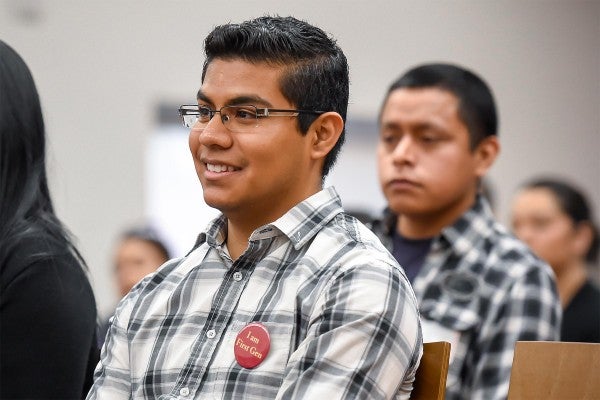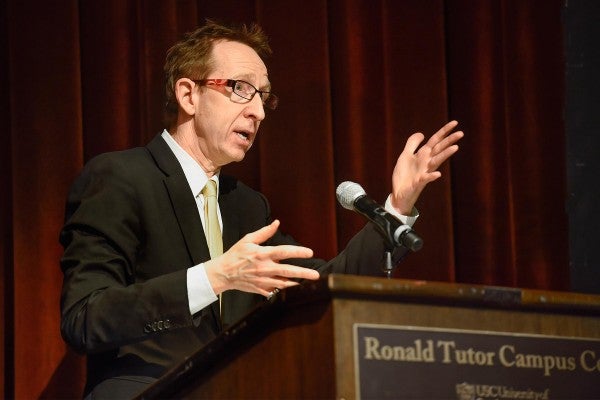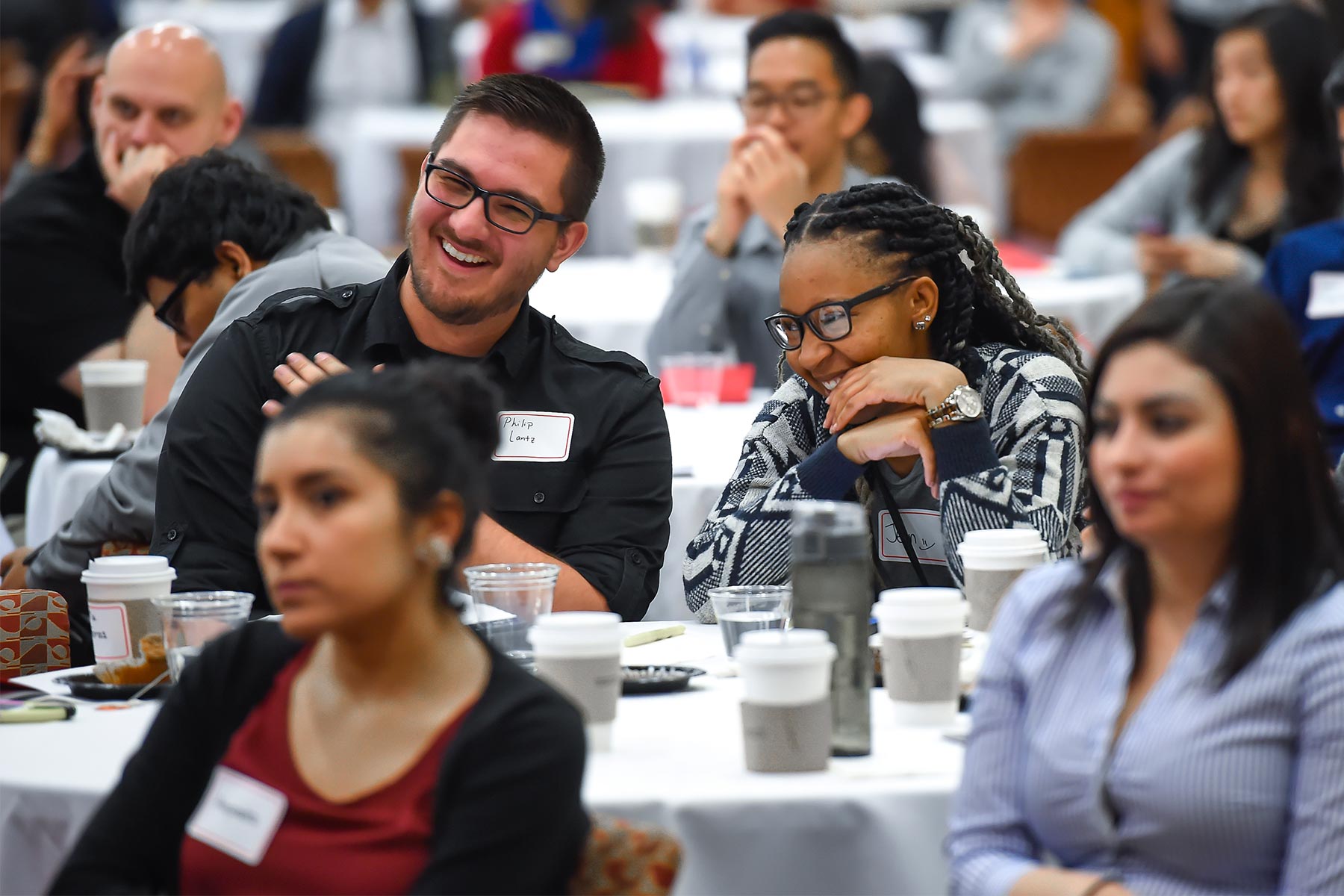Summit helps first-generation students identify resources, opportunities
Inaugural ‘Path to Success’ event brings students together with key faculty, staff and alumni to share experiences and advice

For the approximately 15 percent of USC undergraduates who are the first in their families to attend college, navigating university life can sometimes be stressful, confusing or mysterious. A first-ever daylong summit at USC focused on helping to make college life easier.
The First-Generation Student College Summit: Path to Success brought together first-generation students with key faculty, staff and alumni – and each other – to discuss challenges, best practices and research relating to that unique group. About 350 students attended the Feb. 6 event to share personal experiences, celebrate successes and connect as a community.
“I am first-gen,” said summit host George Sanchez, vice dean for diversity and strategic initiatives at the USC Dornsife College of Letters, Arts and Sciences. “I see a part of me in you.”
Commitment to access
The event underscored USC’s commitment to providing access through financial aid, mentoring relationships and diverse organizations while expanding opportunities for the unique and growing population of first-generation students.
USC Provost Michael Quick declared his personal identification as the first in his family to attend college.
“More and more diverse first-gen students are going to be undergraduates in this country. Universities need to have a vested interest in serving this wonderful population,” said Quick, recounting his own college years.

“You’re not successful in spite of being a first-generation collegegoer. You’re successful because you’re a first-generation collegegoer.”
Inspired by the 2015 Ivy League First-Generation College Conference, the summit was created in response to a universitywide commitment to better serve first-generation students. A task force composed of USC administrators, professors and representatives, many whom were also first-generation college students, worked alongside Sanchez to create the event.
According to Sanchez, first-generation students often feel isolated and unequipped for college since their parents aren’t able to provide advice from first-hand experience. As a result, first-generation students tend to feel as if they don’t belong and can be reluctant to seek help from faculty and staff who could provide them with valuable tools for success.
“The summit is a beginning point for all students whose parents didn’t go to college to feel like full members of the Trojan Family,” Sanchez said.
Alumni and professionals
On one panel, a group of accomplished first-generation alumni and professionals offered personal stories of inspiration, stressing the importance of being resilient and embracing the college experience as a community.
This is the start of a stronger movement to increase resources and spaces so that everyone can succeed.
Natalie Reyes
“The summit is proof that there is a strong community of first-generation and other students, looking for a family environment. This is the start of a stronger movement to increase resources and spaces so that everyone can succeed,” junior Natalie Reyes said.
Additional offerings included breakout sessions where students could meet with other first-generation alumni. Topics included Build Connections to Build Success, From College to Career and Success Strategies for Transfer Students.
During the High-Impact Practices session, students were encouraged to increase their opportunities by seeking out mentors and internships, studying abroad and participating in undergraduate research, community-based learning and writing-intensive courses – not to mention expanding their Trojan network.
Dongping Deng, an industrial and systems engineering PhD candidate, took advantage of networking opportunities.
“This provides us with a bridge to connect with panelists who have a lot of experience to share with us,” Deng said. “As a first-generation student and as the first-generation to travel abroad [from China] to study, it’s important to find communities that offer help for us to connect.”
Additional information on program resources can be found on the USC Dornsife website.




